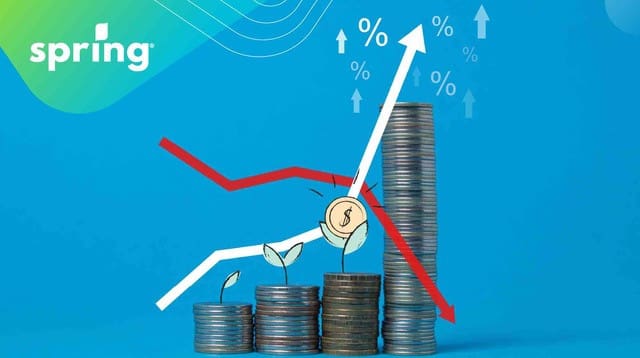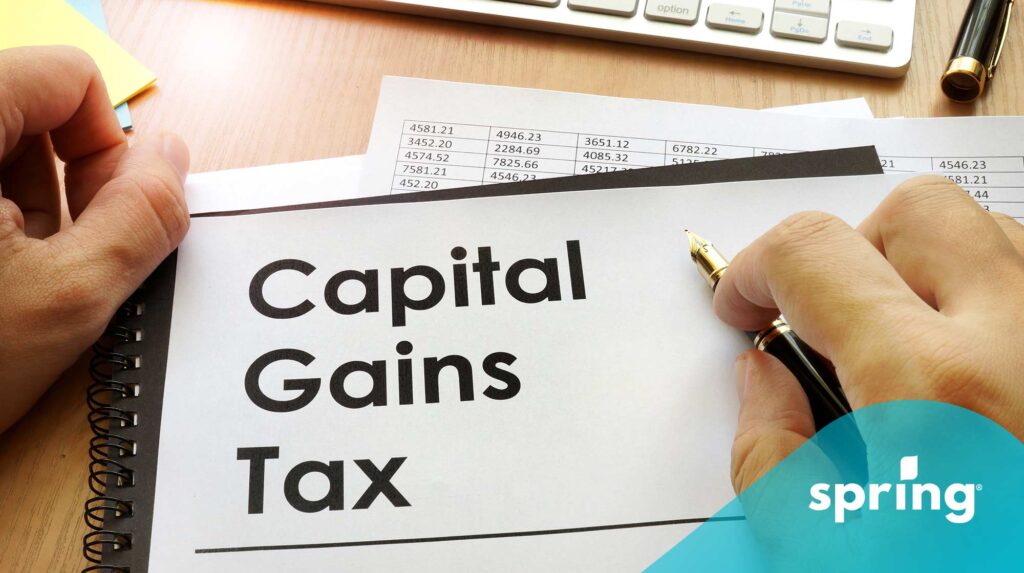When it comes to which provincial tax rates you pay, well, that depends on where you live and where you work. Even if you lived in different provinces throughout the year, you would only pay one tax rate. This is because it’s based on what province you lived in as of December 31. In British Columbia, these income tax brackets are significantly lower than the federal rates; you are required to pay both.
Federal Tax Rates
If you’re looking to determine what your federal marginal tax rate is, you first need to determine your taxable income. Your taxable income is essentially the part of your gross income that is used to determine how much tax you have to pay.
It includes all income that you make throughout the year minus tax deductions, tax credits and exemptions. That said, there are certain incomes that aren’t included in taxable income. These include:
- Gifts
- Inheritances
- Lottery winnings
- Most types of strike pay
- Most life insurance policy amounts
- GST payments
- Canada Child Benefits amounts
- Provincial and Territorial child benefit payments
- Funds are received if you were a victim of a motor vehicle accident or a crime
- Some government benefits
There are a few more exceptions as well. These can be found on the CRA website.
Once you’ve calculated your taxable income, you’ll be able to figure out what your marginal tax rate should be. Let’s take a look at what they are as of 2026:
| Taxable Income Amounts | Marginal Tax Rate |
| On the portion of the income from $0 – $58,523 | 14% |
| On the portion of income, that’s $58,523 – $117,045 | 20.5% |
| On the portion of income that’s $117,045 – $181,440 | 26% |
| On the portion of income that’s $181,440 – $258,482 | 29% |
| On the portion of income, that’s $258,482 | 33% |
BC Tax Brackets
If you live in BC, you’ll not only have to pay the federal tax rate, but you’ll also have to pay the marginal federal tax rate. Just like the federal rate, British Columbia’s income tax rate is based on your total taxable income amount. Let’s take a look at what these rates are as of 2026.
| Taxable Income Amounts | Marginal Tax Rate |
| On the portion of the income from $0 – $50,363 | 5.06% |
| On the portion of income, that’s $50,363- $100,728 | 7.70% |
| On the portion of income that’s $100,728 – $115,648 | 10.5% |
| On the portion of income that’s $115,648- $140,430 | 12.29% |
| On the portion of income, that’s $140,430 – $190,405 | 14.70% |
| On the portion of income, that’s $190,405 – $265,545 | 16.80% |
| On the portion of income, that’s $265,545 and over | 20.50% |
Total Tax Rates if You Live in BC
As previously mentioned, no matter what province or territory you live in, you will have to pay both the provincial and federal tax rates. In BC, the combined federal and provincial tax rates for 2026 are between 20.06% and 53.5%. Let’s take a look at the breakdown.
| Taxable Income Amounts | Combined Marginal Tax Rate |
| On the portion of the income from $0 – $50,363 | 19.06% |
| On the portion of the income from $50,363 – $58,523 | 21.70% |
| On the portion of the income from $58,523 – $100,728 | 28.20% |
| On the portion of the income from $100,728- $115,648 | 31.00% |
| On the portion of the income from $115,648 – $117,045 | 32.79% |
| On the portion of the income from $117,045 – $140,430 | 38.29% |
| On the portion of the income from $140,430 – $181,440 | 40.70% |
| On the portion of the income from $181,440 – $190,405 | 43.99% |
| On the portion of the income from $190,405 – $258,482 | 46.09% |
| On the portion of the income from $258,482 – $265,545 | 49.8% |
| On the portion of the income from $265,545 and up | 53.5% |
Tax Rates in BC Compared to Other Provinces/Territories
When we over the provincial marginal tax rates, BC has some of the lowest and most diverse tax rates. Other provinces have wider income margins with higher tax rates, while some do compare closely but not completely to BC.
Let’s take a look at the other provinces and what their rates are.
| Provinces/Territories | Tax Rates |
| Alberta | 8% on the first $61,20010% over $61,200 up to $154,25912% over $154,259 up to $185,11113% over $185,111 up to $246,81314% over $246,813 up to $370,22015% over $370,220 |
| Saskatchewan | 10.5% first $54,53212.5% over $54,532 up to $155,80514.5% over $155,805 |
| Manitoba | 10.8% first $47,00012.75% over $47,000 up to $100,00017.4% over $100,000 |
| Newfoundland and Labrador | 8.7% first $44,67814.5% over $44,678 up to $89,35415.8% over $89,354 up to $159,52817.8% over $159,528 up to $223,34019.8% over $223,340 up to $285,31920.8% over $285,319 up to $570,63821.3% over $570,638 up to $1,141,2721.8% over $1,141,275 |
| Nova Scotia | 8.79% on the first $30,99514.95% over $30,995 up to $61,99116.67% over $61,991 up to $97,41717.5% over $97,417 up to $157,12421% over $157,124 |
| Prince Edward Island | 9.5%% on the first $33,92813.47% over $33,928 up to $65,82016.60% over $65,820 up to $106,89017.62% over $106,890 up to $142,25019% over $142,250 |
| Ontario | 5.05% on the first $53,8919.15% over $53,891 up to $107,78511.16% over $107,785 up to $150,00012.16% over $150,000 up to $220,00013.16% over $220,000 |
| Quebec | 14% on the first $54,34519% over $54,345 up to $108,68024% over $54,345 up to $108,68025.75% on amounts over $132,245 |
| New Brunswick | 9.4% on the first $52,33314.0% over $52,333 up to $104,66616% over $104,666 up to $193,86119.5% on amounts over $193,861 |
| Northwest Territories | 5.9% on the first $53,0038.6% over $53,003 up to $106,00912.2% over $106,009 up to $172,34614.05% on amounts over $172,346 |
| Yukon | 6.4% on the first $58,5239% over $58,523 up to $117,04510.9% over $117,045 up to $181,44012.93% over $181,440 up to $258,48212.80% over $258,482 up to $500,00015% on amounts over $500,000 |
| Nunavut | 4% on the first $55,8017% over $55,801 up to $111,6029% over $111,602 up to $181,43911.5% on amounts over $181,439 |
How Much Tax You Pay in BC by Salary
As you can see, no matter where you live in BC, your marginal tax rate is going to be the same, but it will differ if you live in a different province. With that in mind, everyone’s tax situation is going to look a little bit different. Let’s take a look at how much tax you would pay based on different salaries.
| Taxable Income | How Much Tax You Pay |
| $50,000 | $9,530 |
| $100,000 | $22,997.23 |
| $150,000 | $41,135.15 |
BC Corporate Tax Rates 2026
Just like with personal tax rates, corporations have tax rates as well. As of 2026, the corporate tax rate you are subject to is based on whether you’re considered to be a corporation or a small business. For a small business, the provincial tax rate is 2%, and the federal tax rate is 9%, giving you a total of 11%.
If you’re considered a corporation, though, the tax rate is considerably higher. The provincial tax rate for a corporation in BC is 12%, while the federal rate is 21%, giving you a total tax rate of 33%.
Other Taxes on Your Income
When it comes to your marginal tax rates, whether they’re federal or provincial, the rates we’ve discussed are for taxable income. However, there are other tax rates for different kinds of income. You may be wondering how you can have income from sources other than taxable income. Well, these amounts are usually considered to be investment income.
Based on the types of investments that you have, there are different tax rates to which these amounts are subject. These types of investment income are:
- Eligible dividends
- Non-eligible dividends
- Capital gains
If you are required to pay a capital gains tax or a Canadian dividends tax, it would be done separately from your taxable income. This is because they have their own individual income tax rates, even though those funds are still considered to be income.
BC Vs Alberta Tax Brackets
The first difference between the two different tax brackets is that BC has 7 provincial tax brackets, while Alberta only has 6. What you may be surprised to learn is that BC taxes are actually slightly lower than those in Alberta. In fact, BC income tax brackets start at just 5.06% whereas alberta income tax brackets start at just 8%.
What’s important to keep in mind is that these provincial/territorial income tax brackets are on top of your federal income tax. In both provinces, though, you can claim both refundable and non-refundable tax credits to reduce your total tax payable to the federal government.
BC Vs Ontario Tax Brackets
When it comes to provincial tax brackets in Canada, residents in both BC and Ontario have very similar tax bracket amounts. The main difference is that BC has 7 tax brackets and Ontario only has 5. When it comes to tax amounts, the amount is higher for higher tax brackets in BC then it is in Ontario.
When it comes to sales taxes, Ontario has a higher rate than BC since they charge HST. BC charges 7% GST and 5% PST of 12%. Even though they’re only slightly different rates with a difference of one percentage point.
How Much is HST in BC?
In Canada, some provinces charge different sales taxes, which can affect the average tax rate. For taxpayers in BC, the amount of dollars you pay in tax is based on the GST and PST combined calculation. In Ontario,the combined HST amount is 13%. Depending on your circumstances in BC, you may need to pay both GST and PST or just one.
Final Thoughts
Even if you are married or have a common-law partner, what you owe in taxes is based on your individual income, most of the time. That said, what you can claim can also be affected by your spouse. Sometimes your excess can be adjusted along with their income. However, before you file, what you’re entitled to claim by the tax deadline can be determined by a tax professional or tax software.









